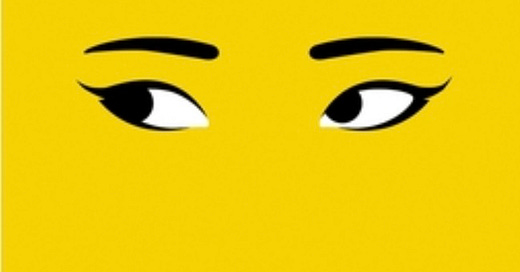Yellowface
By Rebecca F Kuang
Yellowface was last year’s surprise hit. Its author, the American-Chinese Rebecca Kuang, had previously written four fantasy novels, the last of which made number one in the New York Times bestseller list and won the Blackwells prize, but it was the satirical Yellowface, a book about the bitchiness of the literary world and trolling on Twitter, that catapulted the then 27 year old to international fame.
The protagonist of Yellowface is a young female Yale graduate, June Hayward, whose hopes of literary success have come to a primitive end with her first novel receiving a lukewarm reception and not even making it to paperback. Her frustration is exacerbated by her friendship with fellow Yale graduate and media darling Athena Liu, a Chinese-American woman of similar age whose reputation as a writer has soared exponentially, and who gathers plaudits and awards seemingly effortlessly.
What immediately grips the reader is that June is not a good friend. She is seethingly jealous of Athena, resenting her vast advances, sales figures, critical acclaim, and beauty. In every possible area, June feels inferior to the thin, beautiful, talented Athena, and although she is surprised by Athena’s affection towards her, she can’t reciprocate genuinely because of envy. Kuang cleverly shows how when we are biased against someone through envy, we don’t pick up cues about their own insecurity that might otherwise endear them -humanise them - to us.
Then, one terrible night near the beginning of the book, a catastrophic event occurs which irreversibly changes the trajectory of both their lives. What June does next is initially motivated by altruism, but she quickly gives way to her more venal urges and embarks on a complex path of subterfuge.
The result is that June wins the accolades that should by rights be Athena’s. She basks in the glow of approval, sunning herself on the first true literary approbation she has received in her literary life. But living a lie is never easy, and soon her web starts to disintegrate.
The novel has an immediacy to it that grasps you by the collar and drags you in from the start. It’s always been more entertaining to read about flawed people than good ones, but usually the anti-hero is not the main protagonist of a novel, so the reader is left horrified, incredulous, and fascinated by June. Her attempts to justify her actions to herself make her more plausible to the reader.
We are totally enmeshed in the fraud, which means that when things start to unravel, we feel the chill, the goose-pimples of shock and dread that June does.
The novel is fantastic about competitiveness in the world of literature. The ugly displays of jealousy and resentment described are completely feasible, as most of us will have read of real-life literary feuds, and seen social media sniping between writers.
Yellowface is also a powerful indictment of cancel culture. The story covers accusations of cultural appropriation and the idea that a writer is somehow forbidden ethically from writing about the experiences of those from a different ethnic demographic. It accurately conveys how restrictive and petty these moralistic new rules are, and the trauma experienced by those who are targeted by twitter trolls and eventually cancelled. The irony is that for the most part, June is not castigated for her real crime, but for the imagined one of daring to write about the lives of those from another culture.
I have two minor quibbles with the book. One is that even when June is defended by free speech advocates, she - and clearly the author - can’t help taking a kick at them for tending to be right of centre. In real life, people are nuanced rather than Good or Evil, and the digs at those on the soft right who defend June aren’t necessary. You can disagree with people on one subject and agree with them on another; they aren’t necessarily bad people who are defending you for the wrong reason.
My second cavil is to do with the ending. June’s intention at the end seems far-fetched and doomed to failure. Casting it in a positive light seems utterly unrealistic. Perhaps this is an unreliable narrator with delusions of success in her forthcoming project, but it seems an uncomfortable way to end the story.
Nevertheless, the book is clever and funny enough for me to highly recommend it. It’s well versed in contemporary mores and savagely addictive. I hope to read more by Rebecca Kuang in the near future.




The novel sounds excellent Layla. But I have so much to read at the the moment I can't imagine when I will get around to it. I will put it on the long list!